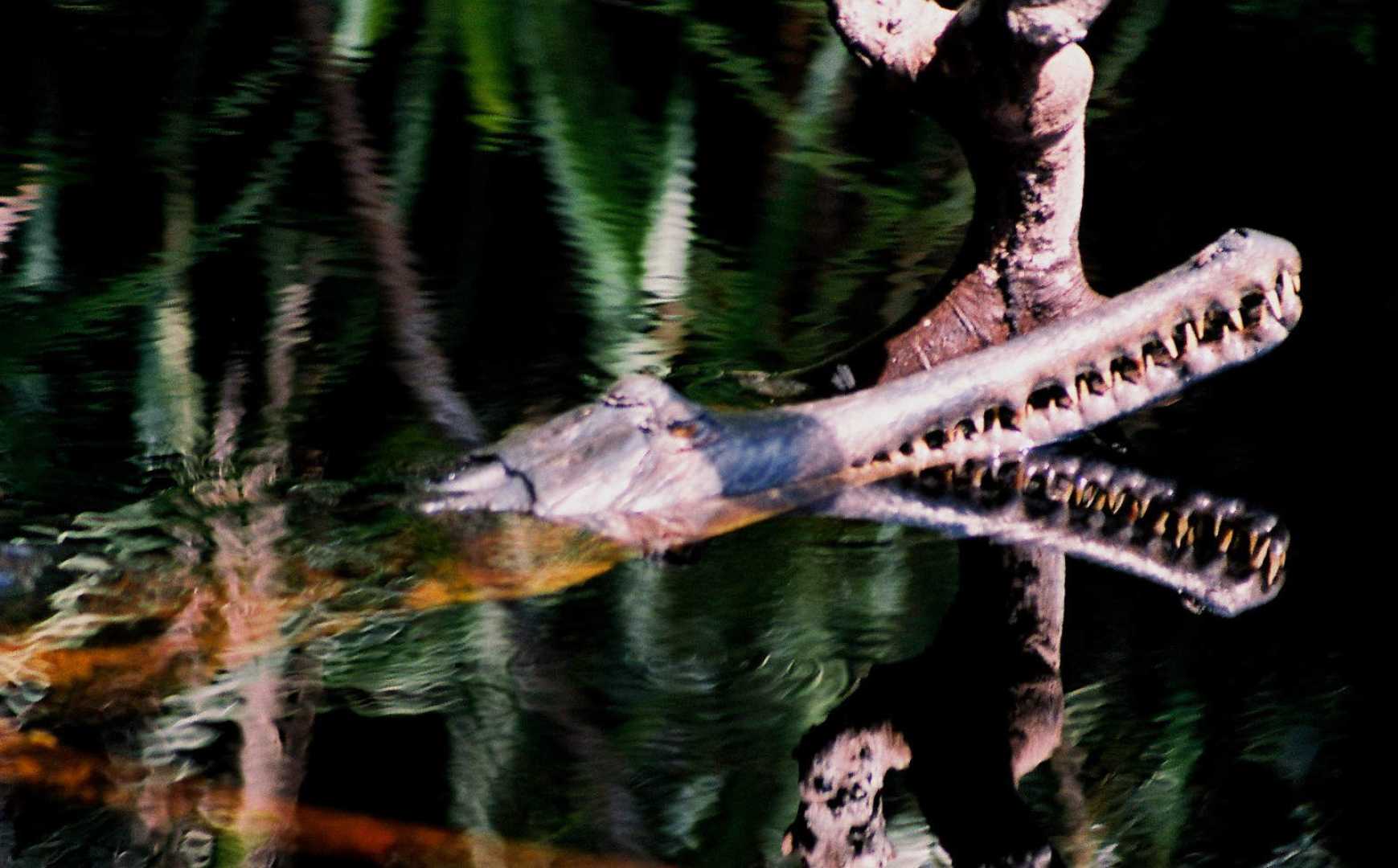News
Crocodile ‘Drowning Tactic’ Debunked by Experts After Viral Video

A viral video claiming that saltwater crocodiles in Borneo are learning to ‘pretend to drown’ to lure humans into the water has been debunked by Australian crocodile experts. The footage, reportedly filmed in the Barito River, shows a crocodile rolling onto its back with its limbs flailing above the surface, sparking widespread speculation on social media.
Brandon Sideleau, a researcher specializing in human-crocodile conflict at Charles Darwin University, dismissed the theory as baseless. ‘I think it’s probably got some prey items in its mouth,’ Sideleau told Yahoo News. ‘I’ve seen saltwater crocodiles spin around underwater with their hands up in the air when they’ve got food in their jaws. That would be my guess.’
Sideleau emphasized that crocodiles, while intelligent, would not mimic human behavior to attract prey. ‘It definitely wouldn’t be trying to lure people in because there’d be no way for it to actually learn that,’ he said. Leading zoologist Professor Graham Webb also rejected the claim, suggesting the crocodile may have had its tail caught and was ‘being prevented from swimming normally.’
Indonesia records approximately 100 saltwater crocodile-related deaths annually, despite having fewer crocodiles compared to Australia, which is home to around 200,000 crocodiles. Sideleau attributed the higher fatality rate in Indonesia and Papua New Guinea to a greater dependency on water for daily activities such as bathing, fishing, and washing. ‘In some areas, people have to do everything in the water,’ he explained. ‘The attack per capita is just very, very high for that reason.’
The viral video has garnered over 50 million views on social media, raising concerns about the spread of misinformation. Sideleau warned that such claims could lead to harmful management strategies for crocodile populations. ‘Other misinformation can be much more damaging if people are suggesting management strategies that are potentially damaging to the crocodile population or dangerous to the human population,’ he said.
Experts urge the public to rely on scientific evidence rather than sensationalized claims when interpreting animal behavior. The incident highlights the importance of accurate reporting and the potential consequences of viral misinformation.












